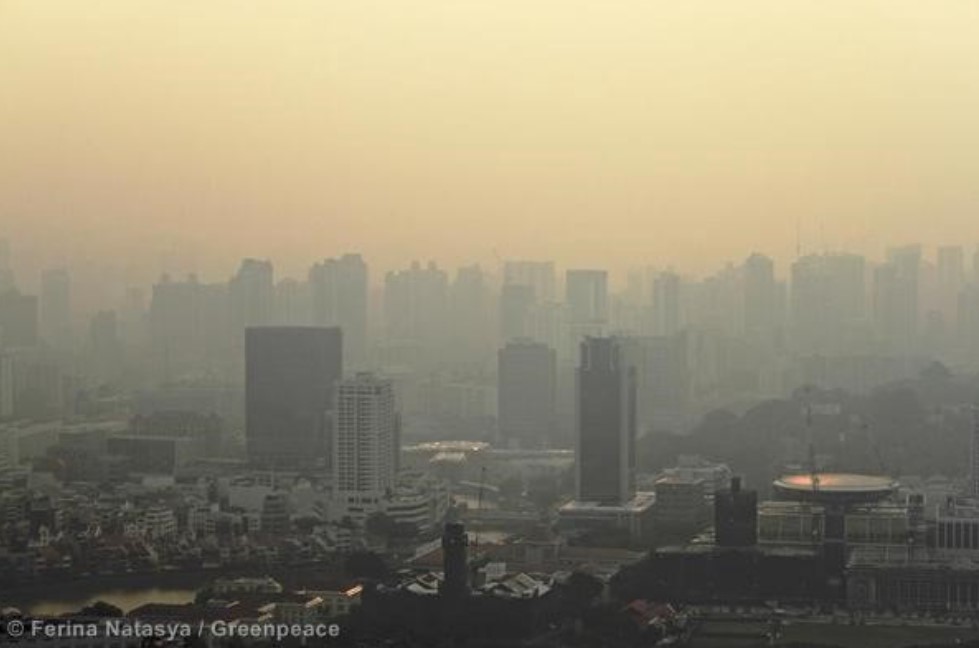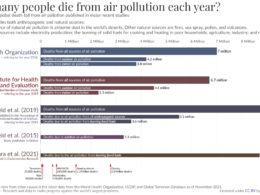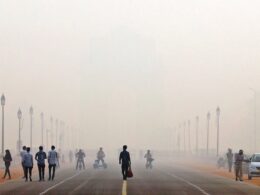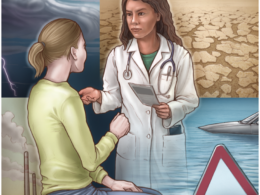PM2.5 air pollution behind an estimated 160,000 deaths in world’s 5 biggest cities in 2020 — Greenpeace Southeast Asia
Greenpeace Southeast Asia
Erin Newport and Tiffany Allegretti
February 18, 2021
PM 2.5 air pollution was behind approximately 160,000 deaths in the world’s five most populous cities in 2020, according to a Greenpeace Southeast Asia analysis of IQAir data from a live Cost Estimator [1] [2].
While some cities saw small improvements in air quality as a result of COVID-19 lockdowns, the devastating impact of air pollution underscores the need to rapidly scale up clean energy, build electrified, accessible transport systems and end reliance on fossil fuels.
“When governments choose coal, oil and gas over clean energy, it’s our health that pays the price.
Air pollution from burning fossil fuels increases our likelihood of dying from cancer or stroke, suffering asthma attacks and of experiencing severe COVID-19.
We can’t afford to keep breathing dirty air when the solutions to air pollution are widely available and affordable,” said Avinash Chanchal, climate campaigner at Greenpeace India.
Delhi sustained an estimated 54,000 avoidable deaths due to PM 2.5 air pollution in 2020, or one death per 500 people.
Jakarta suffered an estimated 13,000 avoidable deaths due to PM 2.5 air pollution in 2020 and sustained air pollution-related losses of USD 3.4 billion, equivalent to 8.2% of the city’s total GDP.
In 2020, the estimated economic cost of PM 2.5 air pollution exceeded USD 5 billion in 14 cities included in the analysis.
- Of the included cities, the highest estimated total financial cost from air pollution was recorded in Tokyo, which suffered approximately 40,000 avoidable deaths and an economic loss of USD 43 billion due to PM 2.5 air pollution in 2020.
- Los Angeles recorded the highest per capita financial cost of PM 2.5 air pollution of all cities on the estimator, at approximately USD 2,700 per resident.
Estimated Air Pollution Impacts in the World’s Five Biggest Cities (2020)
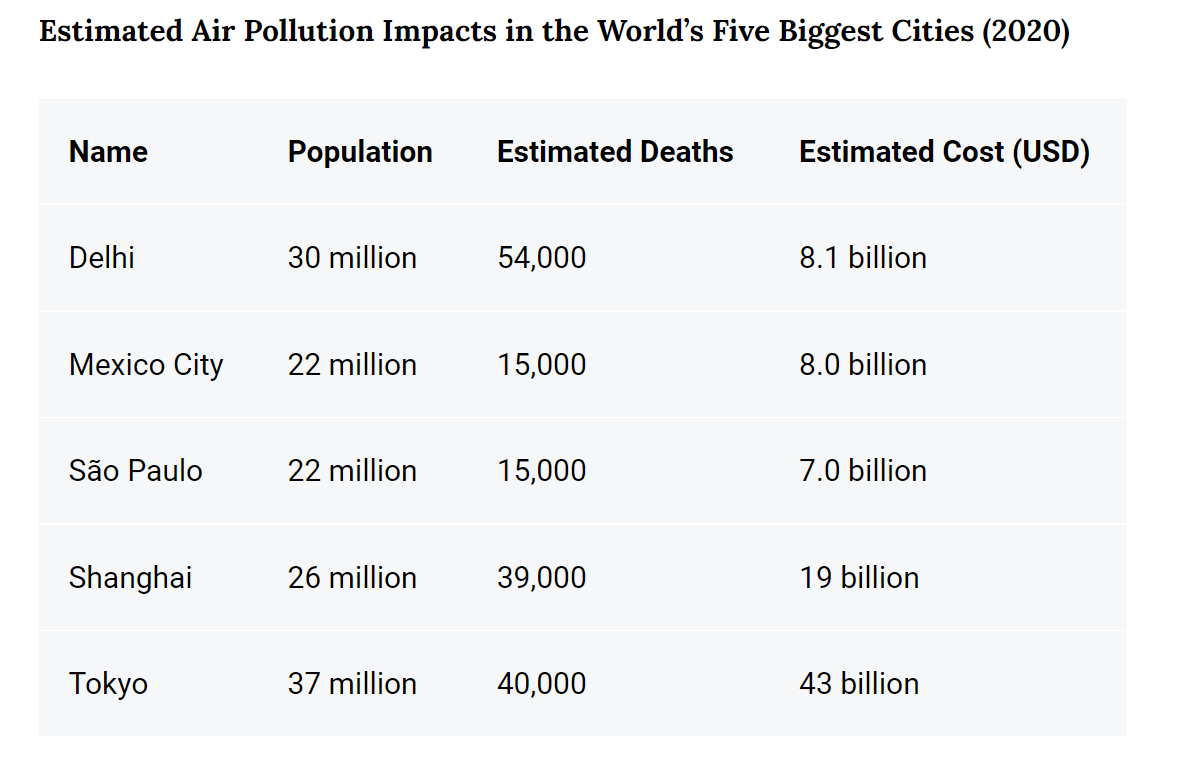
Greenpeace urges that governments at all levels invest in renewable energy sources, such as wind and solar energy, and clean-energy powered, accessible public transport to protect residents from lethal air pollution.
“Breathing should not be deadly. The fact that poor air quality claimed an estimated 160,000 lives in the five largest cities alone should give us pause, especially in a year when many cities were seeing lower air pollution levels due to less economic activity. Governments, corporations and individuals must do more to eliminate the sources of air pollution and make our cities better places to live,” said Frank Hammes, CEO of IQAir.
“In most parts of the world it is now cheaper to build clean energy infrastructure than to continue investing in polluting fossil fuels, even before taking the cost of air pollution and climate change into account.
As governments look to recover from the economic impact of COVID, they must create green jobs, build accessible, clean-energy powered public transport systems and invest in renewable energy sources like wind and solar.
We demand a better normal, not only for the sake of our air, but also to address the flooding, heat waves and intensified storms that we’re experiencing as a result of climate change,” said Bondan Andriyanu, campaigner at Greenpeace Indonesia.
“In most parts of the world it is now cheaper to build clean energy infrastructure than to continue investing in polluting fossil fuels, even before taking the cost of air pollution and climate change into account.
End the air pollution crisis once and for all, because no-one should have to worry about what they breathe.
Notes
See the original publication
The counter builds on the methodology described in the 2020 “ Toxic Air: The Price of Fossil Fuels” report by Greenpeace Southeast Asia and Centre for Research on Energy and Clean Air (CREA), which compiled the latest scientific results on exposure-response relationships between air pollution and health outcomes, as well as the economic costs of health conditions that were linked to air pollution in scientific literature.
The full methodology is available here.
Names mentioned
Erin Newport, International Communications Officer, Greenpeace East Asia: Tiffany Allegretti, Public Relations Manager, IQAir:
Avinash Chanchal, climate campaigner at Greenpeace India.
Bondan Andriyanu, campaigner at Greenpeace Indonesia;
Frank Hammes, CEO of IQAir.
Originally published at https://www.greenpeace.org.




